Is creatine safe for teens? While not as popular as protein powders or hydration drinks such a PRIME, creatine monohydrate is climbing in status among youth, whether they’re athletes or not. Personally, it’s come up in conversation with my own teenage son who is quite active and his friends too, so I wanted to dive into the evidence myself. So let’s talk about it!
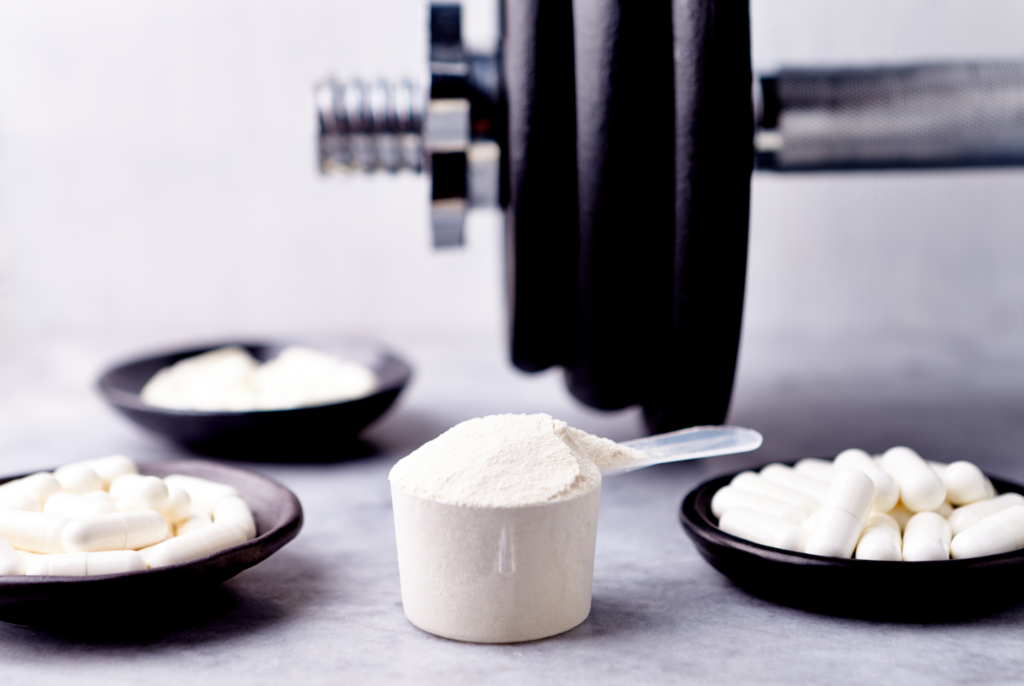
Creatine supplementation is well studied and considered safe to use in adult athlete populations; however, its use is up for debate for younger athletes due to the limited research available in this population. As a dietitian mom, I want to be sure that any supplement my teen takes is safe, beneficial and worth the cost. I have done the research and put together everything parents need to know about creatine supplementation in teens.
Need personalized nutrition support?
Book an appointment with one of our pediatric dietitians today for help with sports nutrition!
In this post, I’ll answer these burning questions:
- What is creatine?
- Is creatine safe for teens?
- What is creatine used for?
- Why do kids or teens use creatine (or want to)?
- Does creatine benefit teens?
- What are the potential negative side effects?
What is creatine?
Creatine is an amino acid that is both made in the body and consumed through animal food sources. Red meat, fish, and organ meats are especially rich in creatine. Like other amino acids, creatine is mainly stored in muscle tissue. During periods of physical activity and high energy demand, the body can use this amino acid as a source of energy for cells in the body.
Creatine is a proven ergogenic aid (a substance that enhances exercise/sport performance) for adult athlete populations. A large body of research also supports the therapeutic use of creatine to help treat a variety of clinical disorders including neuromuscular and metabolic disorders in both children and adults.
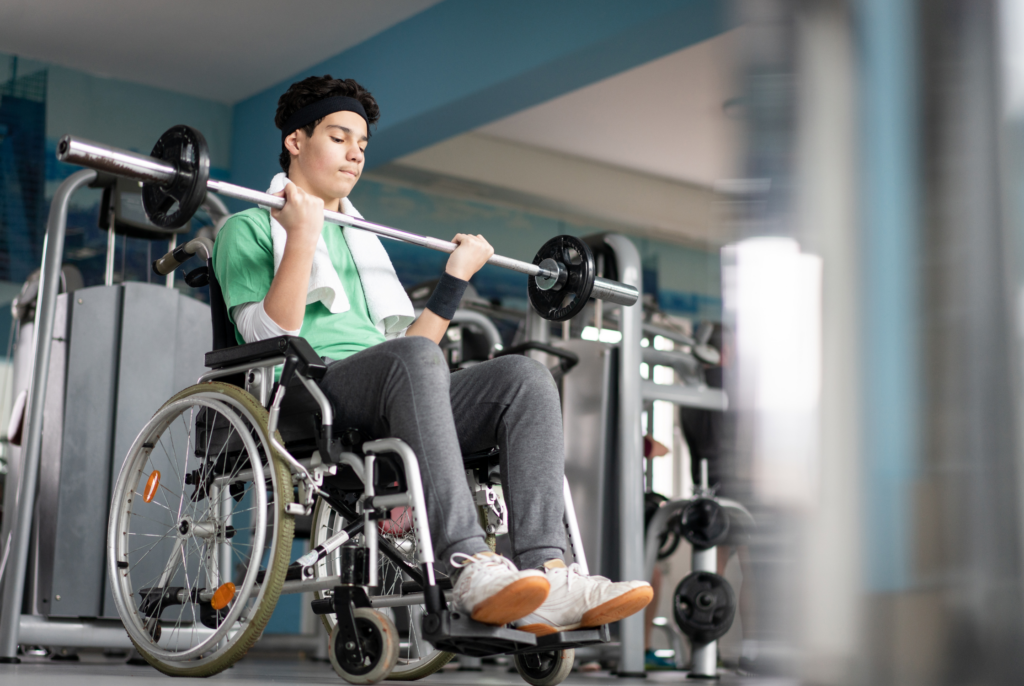
Is creatine safe for teen athletes?
Although creatine is commonly used by young athletes, its supplementation among this age group remains controversial. Unfortunately, there is a pretty big gap in research when it comes to looking at the long-term safety of creatine usage in teen athletes.
The majority of studies available in the teen athlete population were conducted on male swimmers and soccer players, looking at the efficacy of creatine supplementation over a relatively short period of time. While the results show that creatine helped increase performance and power output (with no recorded adverse side effects), the studies were not designed to evaluate safety or health risk related to the supplementation.
Research on creatine and teens is lacking
Simply put, high-quality research studies are urgently needed to specifically assess the short- and long-term safety of creatine supplementation in teen athletes. On the other hand, there are many studies that look at therapeutic creatine supplementation in infants, children and teens. These studies do not report any evidence of significant adverse events or health risks as a result of the supplementation.
In fact, the International Society of Sports Nutrition (ISSN)—a highly respected organization dedicated to guide professionals on the most up to date practices in the field of sports nutrition—position paper on creatine supplementation states: “If proper precautions and supervision are provided, creatine monohydrate supplementation in children and adolescent athletes is acceptable and may provide a nutritional alternative with a favorable safety profile to potentially dangerous anabolic androgenic drugs.” It goes on to state that creatine use should only be considered by younger athletes who are involved in competitive and supervised training, who eat a well-balanced diet, and use creatine appropriately within recommended dosages.
My take: creatine supplements can be used safely and may provide benefit to a select group of young elite level athletes if administered under the professional supervision of a pediatric sports dietitian and family doctor, and if there is no risk of disordered eating behaviours, body dysmorphia or eating disorders.
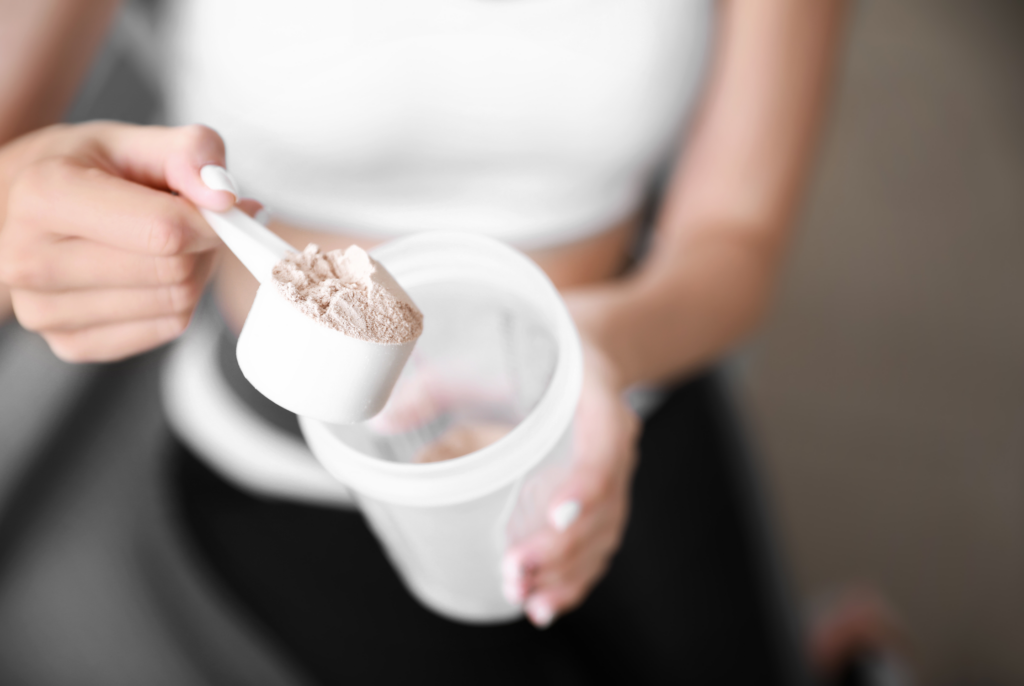
Why do kids and teens take (or want to take) creatine?
Athletes of all ages, including increasing numbers at high school age and younger, take creatine for its performance-enhancing effects. In fact, exercise and sports performance benefits of creatine supplementation is well supported in the literature when it comes to the adult athlete population. Creatine supplementation saturates the muscle’s creatine stores, making this amino acid highly available during training to be used by body cells as fuel.
It has shown to enhance high intensity exercise performance and improve the work capacity of muscles, resulting in accelerated muscle growth and strength. Adult athletes who supplement with creatine show both an improvement in training tolerance and enhanced recovery post training. Dosages of creatine are calculated based on an athlete’s body weight. Individualized consultation with a sport performance professional or sports dietitian is recommended to ensure the proper dosage is prescribed.
Teens take creatine to gain muscle
Since using creatine helps accelerate muscle growth, a subset of teens may want to take creatine solely for the purpose of “getting bigger” or “gaining muscle”, even if they aren’t involved in high-level sport. This is one of the reasons why creatine is most popular among male adolescents, as many strive to achieve what wellness and diet culture deem as the “ideal body shape and size” for men. Unfortunately, using creatine (or any other supplement) for the sole purpose of manipulating physical appearance may be indicative of underlying psychological concerns such as body dysmorphic disorder or disordered eating behaviours.
Teens who strive only to gain weight and muscle from using creatine may end up abusing the supplement by taking incorrect dosages. It is important for parents to be aware of this possible use of the supplement, especially if their child is taking creatine and isn’t involved in elite-level sport and therefore lacks the supervision of a registered sports dietitian.

Does creatine benefit teen sport performance?
Creatine supplementation does seem to benefit high performing teen athletes. Although limited studies have been conducted in this population, the ones that have been done did show that creatine was well tolerated with no adverse side effects during its short-term administration. These studies showed improvement in muscle power output, overall sports performance in both male soccer players and competitive swimmers.
There is a clear need for more research to examine the benefits of creatine supplementation in other types of sports performance and exercise training (apart from swimming and soccer) that include the assessment of both male and female athlete subjects as well.
Should my teen be taking creatine?
As mentioned above, always consult your teen’s healthcare provider and a registered pediatric sports dietitian before starting your teen athlete on a creatine supplement. Individualized assessment is needed to determine whether or not your child is ready for and would benefit from this ergogenic aid.
Keep in mind that many kids and teens may want to take creatine for the wrong reasons. Wanting to change their body shape or size (purely for appearance-based goals) signals that this is an underlying body image issue resulting from the pressures of diet culture. If you suspect your teen may be struggling with body dysmorphia or other mental health concerns, it may be helpful to seek outside support from a child psychologist and pediatric registered dietitian to address these concerns.
Does creatine have negative side effects?
There have been no clinically significant negative side effects associated with creatine supplementation to date. While there is a need for more research looking specifically at the side effects of creatine on teen athlete population, evidence from clinical studies in younger populations report no significant side effects. Creatine does result in weight gain, both from increased muscle mass (as a result of enhanced training) as well as higher water retention within the muscle tissue. While this is a welcomed result for most taking the supplement, those who are sensitive about weight gain should be aware of this side effect.
It is important that parents, coaches and dietitians working with teen athletes should be upfront and honest about the body changes they can expect from taking creatine. This conversation will help mentally prepare them for how they may feel about these possible changes in their body shape and size. Having open communication around this topic will help your teen athlete to feel safe to come to you in the future if they are struggling with how the weight gain side effects are impacting their social and emotional well-being.

What if you stop taking creatine, what happens?
If an athlete stops taking creatine the first thing that becomes apparent is some weight loss. This not a loss in muscle mass but rather a loss of water from the muscle that the extra creatine was holding on to during supplementation. The muscle size and strength that you gained from supplementing creatine will not be lost immediately. In fact, it is possible to maintain the muscle mass and strength gained through supplementation if the athlete continues to follow a strategic training regimen supported by an effective sports nutrition plan.
Since creatine stays in the body for a while, it will take about 4-6 weeks for body creatine levels to return to baseline. Some athletes have the concern that their body won’t go back to producing creatine after stopping supplementation. This is a myth. The body’s endogenous ability to produce creatine is not reduced or dampened by creatine supplementation.
Bottom line
While there is a ton of research supporting creatine supplementation in adult athletes, we need more studies to assess the safety and benefits of creatine supplementation in teen athletes.
If you have an active teen who is involved in a rigorous training for elite level sports, creatine supplementation may be beneficial to their performance and recovery. Assessment by a registered dietitian well versed in pediatric sports nutrition would be required to move forward.
For regular active teens, creatine supplementation is not recommended.
References:
- Creatine Supplementation in Children and Adolescents – PMC (nih.gov)
- Safety of Creatine Supplementation in Active Adolescents and Youth: A Brief Review – PMC (nih.gov)
- International Society of Sports Nutrition position stand: safety and efficacy of creatine supplementation in exercise, sport, and medicine – PMC (nih.gov)
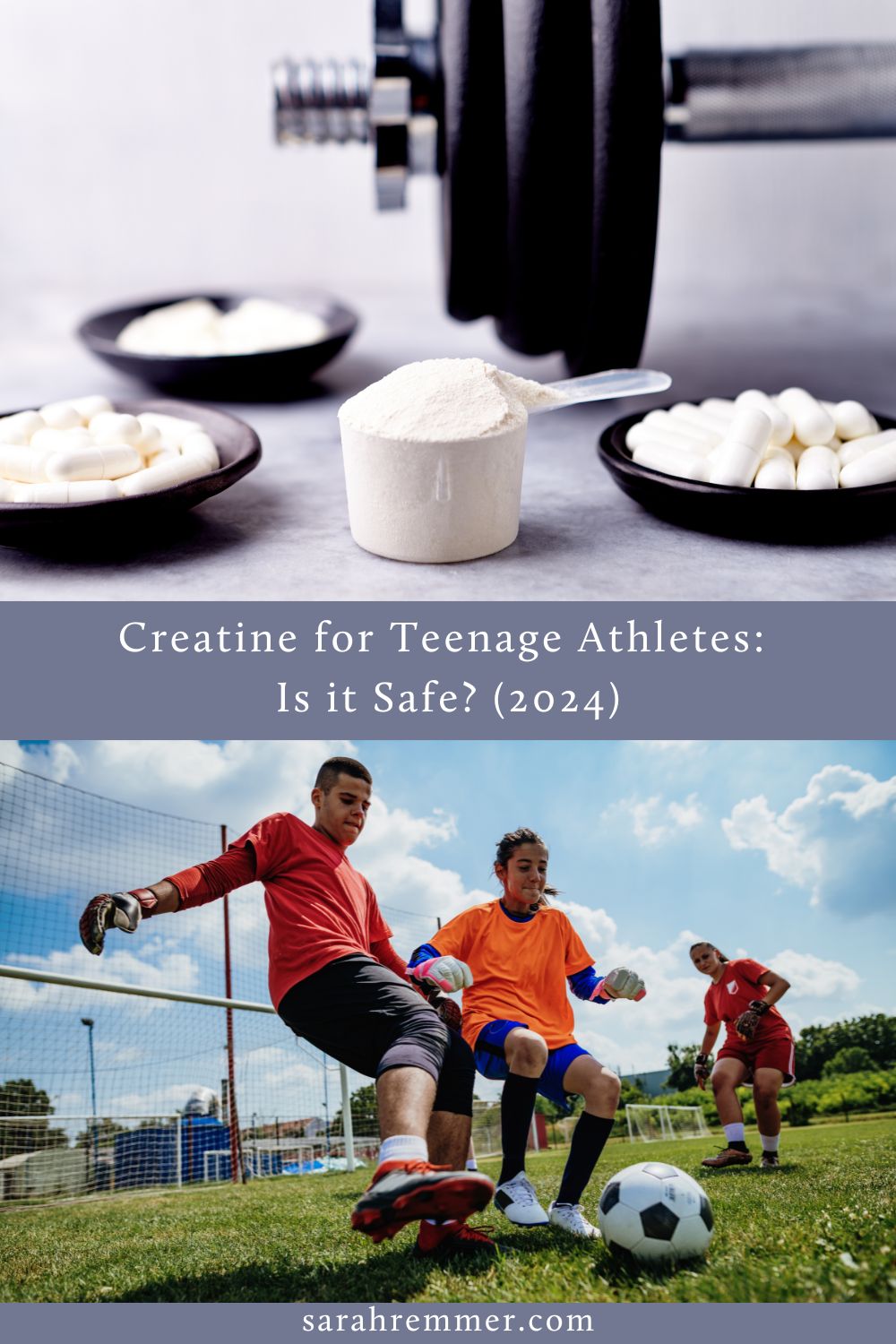
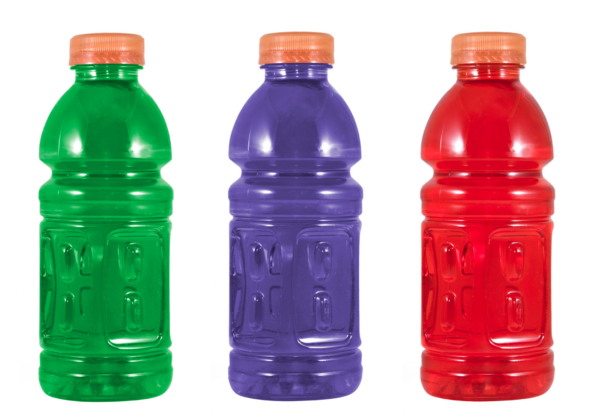
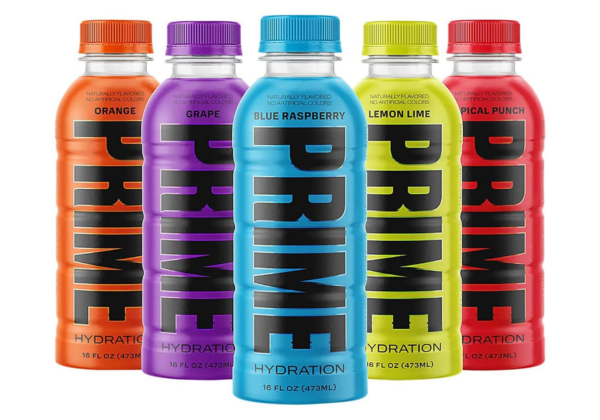






Leave a Comment